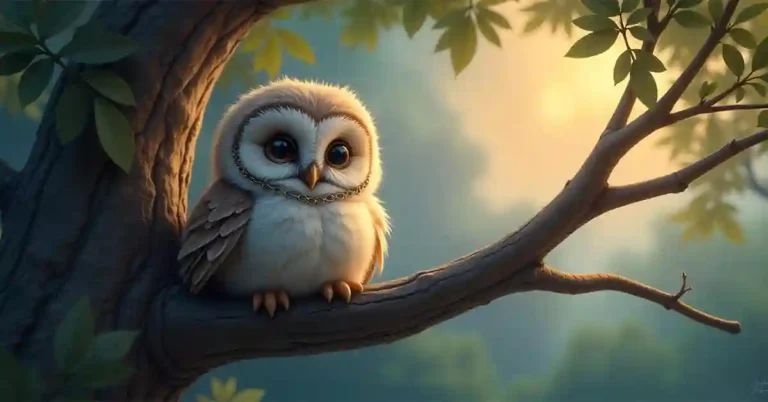Crossword puzzles are a delightful way to challenge your mind and expand your vocabulary. They offer a sense of achievement once you solve them and an opportunity to learn new things along the way. Among the myriad of clues that puzzle enthusiasts encounter, the “baby that can hoot crossword clue” has piqued the curiosity of many. But what does it mean, and how can you solve it effectively?
Have you ever come across the “baby that can hoot crossword clue” while filling out a puzzle? What image does it conjure in your mind? These intriguing clues stretch our problem-solving skills and enhance our thought processes. In this article, we’ll explore the origins of such clues, understand their significance, and learn how to approach them confidently.
Solving crossword puzzles can improve cognitive skills and vocabulary. The challenge is thrilling, and the process of deciphering clues offers a satisfying intellectual exercise. Let’s uncover the mystery behind the “baby that can hoot crossword clue” and enhance your crossword-solving prowess!
What Is a Crossword Puzzle?
Crossword puzzles are word games that consist of a grid of white and black squares. The goal is to fill the white squares with letters, forming words or phrases by solving the given clues. Words run horizontally and vertically, intersecting one another. Puzzles vary in size, difficulty, and theme, and they are enjoyed by people of all ages.
The history of crossword puzzles dates back to the early 20th century. Arthur Wynne, a journalist from Liverpool, created the first modern crossword puzzle in 1913. It was published in the New York World newspaper and quickly gained popularity. Since then, crosswords have evolved into various forms and styles, captivating puzzle enthusiasts worldwide.
Crossword puzzles are not only entertaining; they also offer mental exercise. Solving puzzles improves vocabulary, enhances problem-solving skills, and boosts memory. Engaging in this activity regularly can also improve concentration and reduce stress.
Understanding Crossword Clues
Crossword clues are hints that help solvers find the correct words or phrases to fit into the puzzle grid. Clues can be straightforward or cryptic, and they often contain wordplay or puns. Understanding the type of clue is essential for solving the puzzle successfully.
There are two main types of crossword clues: direct and indirect. Direct clues provide straightforward hints, while indirect clues involve wordplay or require lateral thinking. Solvers must analyze the clue carefully to determine the intended meaning and context.
Crossword enthusiasts often encounter different clue styles, including synonyms, anagrams, homophones, and themed clues. Familiarity with these styles can significantly enhance one’s ability to solve puzzles efficiently and enjoyably.
The Mystery of the “Baby That Can Hoot” Clue
The “baby that can hoot crossword clue” is an example of a playful and intriguing clue. It combines elements of wordplay and thematic referencing to engage solvers and test their knowledge. Understanding the clue requires a bit of creativity and lateral thinking.
A baby that can hoot refers to something small or young that makes a hooting sound. In the animal kingdom, owls are known for their distinctive hoots. The clue could be pointing toward a juvenile owl, commonly called an owlet. Owlets are the young offspring of owls, and they exhibit a similar hooting behavior as their adult counterparts.
Solving this clue involves identifying the connection between the concept of “baby” and the characteristic sound of hooting. By recognizing the relationship between “baby owl” and “owlet,” solvers can confidently fill in the puzzle grid.
Why Crosswords Use Wordplay
Wordplay is a fundamental element of crossword puzzles, adding complexity and entertainment to the solving experience. It involves manipulating language, sounds, and meanings to create clever and challenging clues. Wordplay enhances the engagement and enjoyment of crossword enthusiasts.
Crossword constructors employ various wordplay techniques to craft intriguing clues, including puns, homophones, anagrams, and cryptic references. These techniques require solvers to think creatively and consider multiple interpretations of a clue.
By incorporating wordplay, crossword puzzles transcend mere language exercises. They become a delightful blend of linguistic creativity and intellectual challenge, appealing to a broad range of puzzle enthusiasts.
Exploring Animal-Themed Crossword Clues
Animal-themed crossword clues are popular among puzzle constructors due to their versatility and appeal. These clues often involve wordplay, thematic references, and interesting facts about different animals. Solvers can learn about various creatures while enjoying the puzzle-solving process.
Animal-themed clues can range from straightforward references to more cryptic or humorous hints. For example, a clue mentioning “king of the jungle” may refer to a “lion,” while a hint about a “slippery creature” could point to an “eel.”
These clues not only enhance the puzzle’s theme but also provide an educational aspect. Solvers gain knowledge about the animal kingdom while engaging in a fun and challenging activity.
Tips for Solving Crossword Puzzles
Solving crossword puzzles requires practice, patience, and a strategic approach. Here are some tips to help you become a more effective crossword solver:
- Start with Fill-in-the-Blank Clues: These clues are often easier to solve and can give you a foothold in the puzzle.
- Look for Short Words: Filling in short words can provide valuable intersections and help identify longer entries.
- Consider Wordplay: Be open to multiple interpretations and think creatively about potential solutions.
Building your vocabulary and familiarizing yourself with common crossword themes can also improve your solving skills. Practice regularly to develop your intuition and enjoy the process of discovery.
The Benefits of Solving Crosswords
Engaging in crossword puzzles provides numerous cognitive benefits that contribute to mental well-being. Solving these puzzles enhances vocabulary, improves memory, and sharpens problem-solving skills. The mental challenge also promotes concentration and reduces stress.
Crosswords stimulate the brain, encouraging critical thinking and creativity. They offer a sense of accomplishment and satisfaction when the puzzle is completed. Additionally, solving crosswords can be a social activity, allowing individuals to collaborate and share their love for wordplay.
Incorporating crossword puzzles into your routine can have lasting positive effects on cognitive health and overall well-being.
The Role of Crosswords in Language Learning
Crossword puzzles are valuable tools for language learners, offering an engaging and interactive way to practice vocabulary and comprehension. They encourage learners to think critically about word meanings, synonyms, and related concepts.
Language learners can benefit from the diverse range of vocabulary and contexts presented in crosswords. Solving these puzzles allows learners to reinforce their language skills and gain confidence in their linguistic abilities.
Crossword puzzles can be tailored to different proficiency levels, making them suitable for beginners and advanced learners alike. They provide an enjoyable and effective means of language acquisition.
Crossword Puzzles as a Family Activity
Crossword puzzles make for a fantastic family activity, fostering bonding and collaboration among family members. Solving puzzles together encourages communication, teamwork, and shared learning experiences.
Families can enjoy a wide variety of crossword puzzles, from simple themes for younger children to more challenging grids for adults. The diversity of puzzles ensures that everyone can participate and enjoy the activity.
By incorporating crosswords into family routines, parents can nurture a love for language and problem-solving in their children while spending quality time together.
Creating Your Own Crossword Puzzle
For those who enjoy crossword puzzles, creating your own puzzle can be a rewarding and creative endeavor. It allows you to explore wordplay, thematic ideas, and linguistic creativity firsthand.
Start by selecting a theme or topic for your puzzle. Then, brainstorm words related to the theme and construct a grid that accommodates those words. Craft clever and engaging clues that challenge solvers while remaining fair and solvable.
Creating a crossword puzzle provides a deeper appreciation for the art of puzzle construction and enhances your understanding of language and wordplay.
Sharing Your Crossword Experience
Sharing your crossword-solving experiences can be a source of inspiration and motivation for others. Whether through social media, blogs, or puzzle clubs, connecting with fellow enthusiasts fosters a sense of community and shared passion.
Discussing puzzles, offering tips, and sharing solved grids can help others enhance their skills and develop their love for crosswords. Engaging with a community of solvers provides support and encouragement, making the experience even more enjoyable.
Consider joining online forums or local puzzle clubs to connect with like-minded individuals and share your enthusiasm for crossword puzzles.
FAQs With Answers
What is the “baby that can hoot crossword clue”?
The clue refers to a young owl, commonly known as an “owlet,” which is a baby owl capable of hooting.
How do crossword puzzles improve cognitive skills?
Crossword puzzles stimulate the brain by enhancing vocabulary, improving memory, and sharpening problem-solving skills.
What are some common types of crossword clues?
Common types of clues include direct clues, synonyms, anagrams, homophones, and themed references.
Can solving crosswords help with language learning?
Yes, crosswords provide an engaging way to practice vocabulary and comprehension, benefiting language learners of all levels.
How can families enjoy crossword puzzles together?
Families can solve puzzles as a group, fostering communication, teamwork, and shared learning experiences.
Conclusion
Crossword puzzles are a delightful and rewarding pastime that engages the mind and enriches language skills. The “baby that can hoot crossword clue” is just one example of the playful and creative nature of these puzzles. By understanding clue types, practicing regularly, and enjoying the process, solvers can enhance their cognitive abilities and derive immense satisfaction from completing puzzles.
Whether you’re a seasoned enthusiast or a newcomer, exploring crossword puzzles offers endless opportunities for growth, learning, and enjoyment. Keep solving, stay curious, and continue to discover the wonders of language and wordplay!






